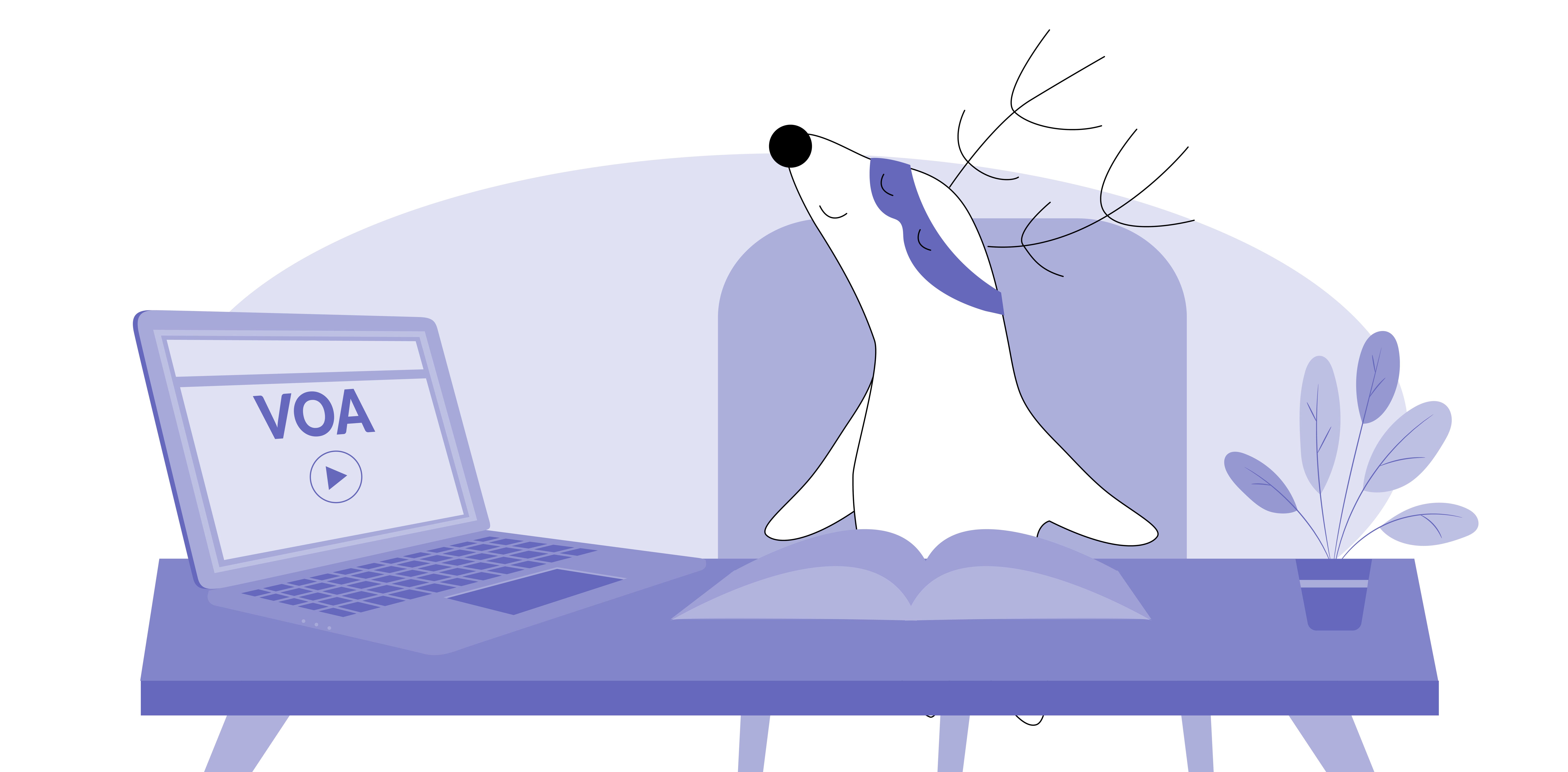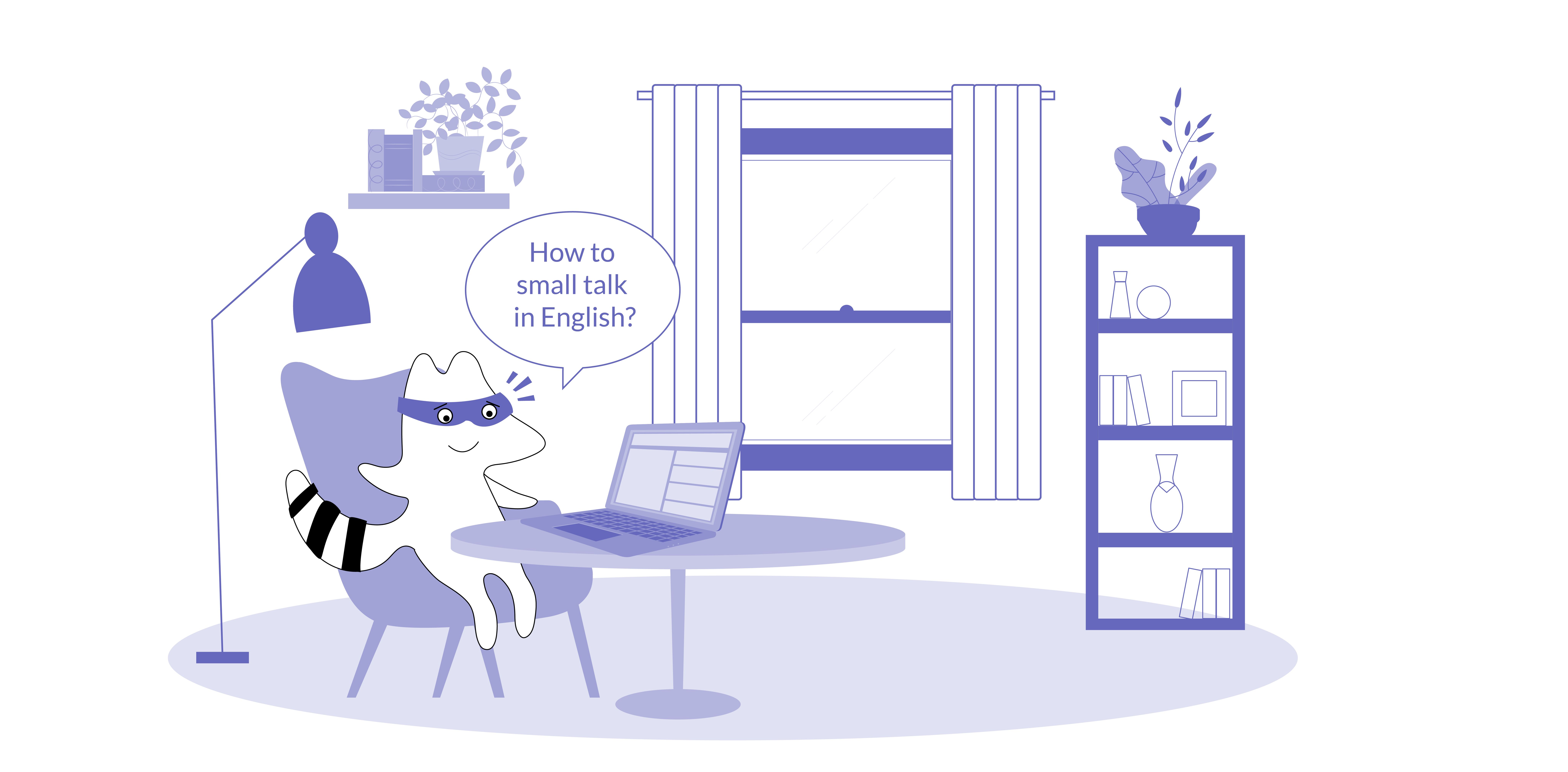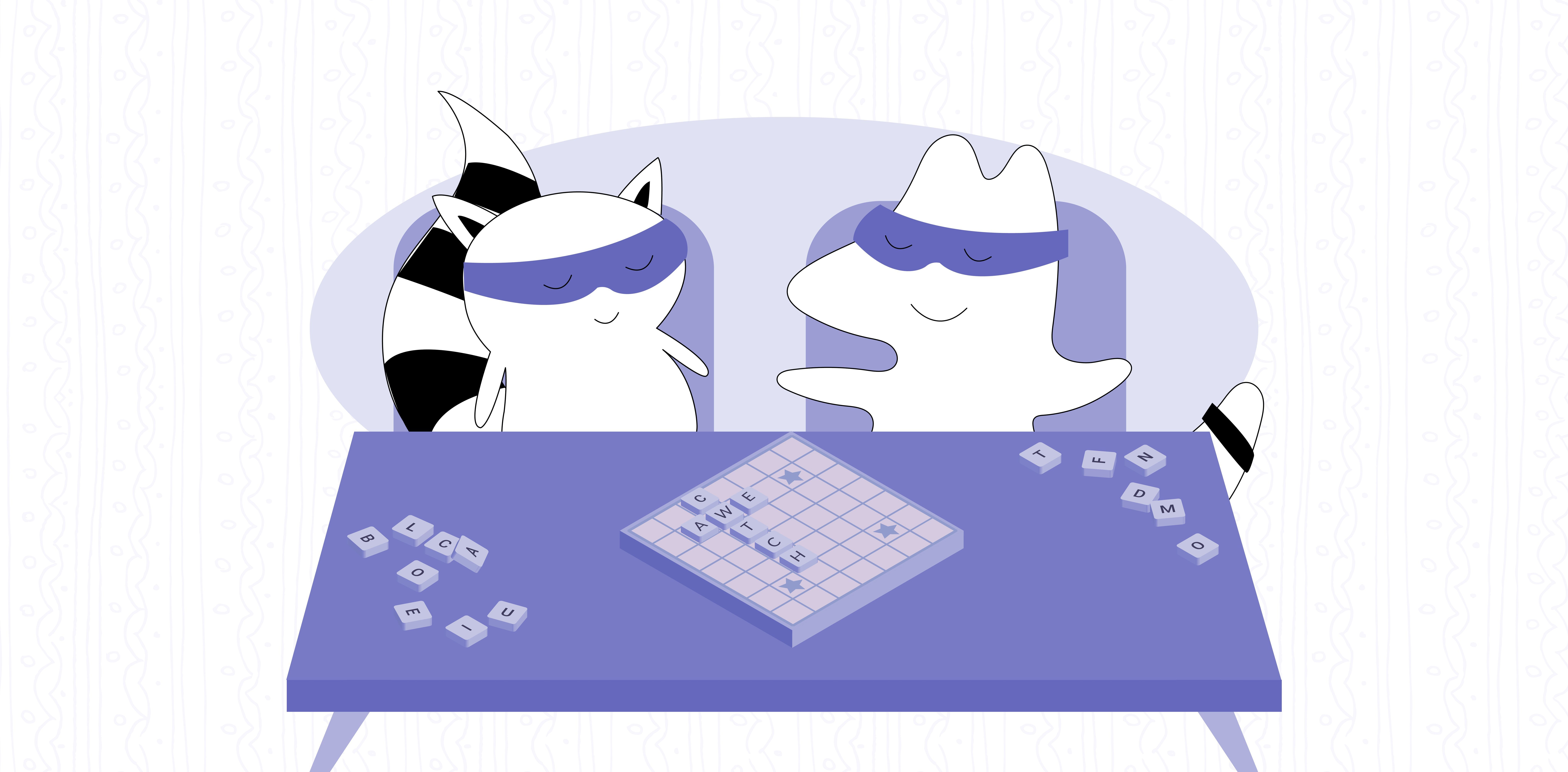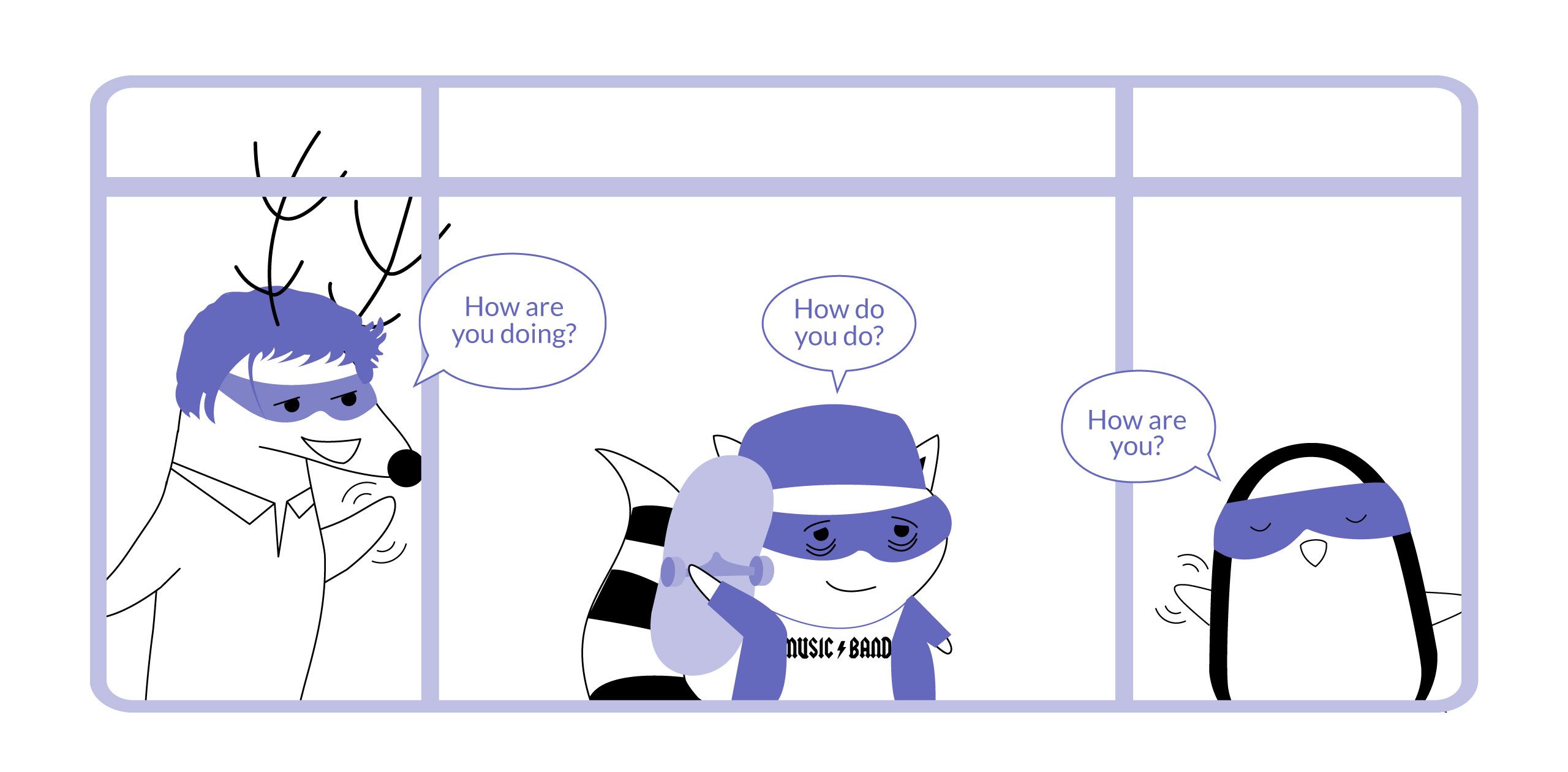
Most likely, you ask your conversation partners — foreign friends, English-speaking colleagues, or just new acquaintances — how they are doing on a daily basis. But are you sure you're doing this correctly?
While "How are you?" and "How are you doing?" in theory might have the same meaning, you might be surprised by how their usage differs in practice, depending on the tone and context of the conversation, as well as its participants.
You may wonder why we didn't add "How do you do?" to this comparison. To take this off the table right away, it is worth mentioning that the expression that most of us consider to be a question, in fact, is not.
It is a fixed phrase in the formal English language that has been in use for a long time as a commonplace greeting and a strictly official one (think of white-tie-and-tails official). Native English speakers most often use it instead of "Hello!" but it also sounds a bit old-fashioned.
To avoid mistakes in the field, let's start small. In this post, we'll help you figure out the difference between "How are you?" and "How are you doing?", when to use and how to answer them, as well as which one you should use in business correspondence. Read on.
Learn English with Langster
How Are You?
"How are you?" is a more personalized expression that focuses specifically on a person's condition — their mood, state of health, or general well-being.
It is also a more formal form than "How are you doing?" and is usually used when speaking to a person you've met for the first time or someone you aren't particularly close with.
It can also be used as a way of saying "please to meet you" or "good to see you," especially in American English, and is an alternative to "How do you do?" in British English.
While "How are you?" is already a question that requires an answer (in contrast to "How do you do?"), there is a certain subtlety here, too. Fortunately, there aren’t as many of them as in French.
By asking this question, a person does not intend to listen to the details of one's personal life — this is just a common form of starting a conversation, an alternative to a polite — but still formal — greeting, and nothing more.
How to Answer "How Are You?" in Conversation
So, how should you answer "How are you?" in a polite manner while also staying within the boundaries of your acquaintance? It is worth noting that "How are you?" should never be answered negatively or in too much detail. Otherwise, it will be obvious that you are not a native speaker of English.
"Great," "Fine, thanks," and "Couldn't complain" are all appropriate responses. Ideally, the answer should be followed by a corresponding "How are you?", "How about you?" or a quick "And you?" to keep the chit-chat as polite as possible.
There isn't one correct response to this question. You can answer it in several ways:
| Answer | Explanation |
|---|---|
| I'm fine, thanks. How are you? | This is by far one of the most socially acceptable answers and a basic form of social interaction that does not require any further details, regardless of your current life circumstances. Most people use this answer on a daily basis. |
| Very well, thank you. How are you? | This is a very formal way to answer this question, compared to "Fine, thanks.” |
| Never better! And you? | The fact that the response lacks detail does not mean you cannot express any emotions at all — especially if you're in a good mood. |
| Could be better. How about you? | On the other hand, if you are having "one of those days," it's okay to share it with the other person if they seem to have a tough day as well, offering some sort of a quick yet friendly commiseration or a bit of support. However, it is crucial to read the room to avoid creating an impression of an attention-seeker. |
| Answer | Explanation |
|---|---|
| I'm fine, thanks. How are you? | This is by far one of the most socially acceptable answers and a basic form of social interaction that does not require any further details, regardless of your current life circumstances. Most people use this answer on a daily basis. |
| Very well, thank you. How are you? | This is a very formal way to answer this question, compared to "Fine, thanks.” |
| Never better! And you? | The fact that the response lacks detail does not mean you cannot express any emotions at all — especially if you're in a good mood. |
| Could be better. How about you? | On the other hand, if you are having "one of those days," it's okay to share it with the other person if they seem to have a tough day as well, offering some sort of a quick yet friendly commiseration or a bit of support. However, it is crucial to read the room to avoid creating an impression of an attention-seeker. |
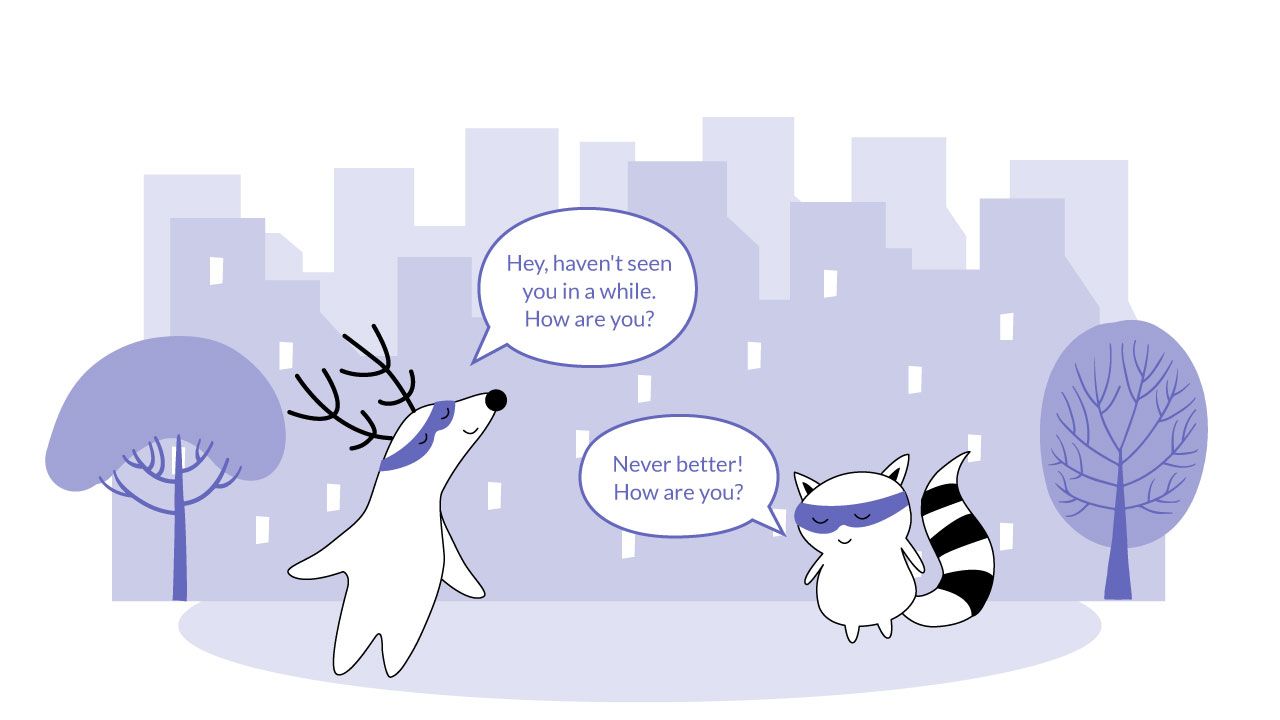
How Are You Doing?
While "How are you?" asks for a statement of a person's condition, "How are you doing?" asks for a more detailed answer. This is a more casual form of greeting that can also mean "How’s it going?", "How's your day been so far?" — aimed to find out how things are in general or whether everything is fine.
According to a forum discussion at English Language & Usage Stack Exchange, the difference may also vary depending on the region.
Thus, while "How are you?" can be considered a bland greeting for someone you haven't seen for a while, "How are you doing?" spoken in full (as opposed to being shortened to "Howyadoin?") may be an actual inquiry - for example, when you're meeting with an old friend. The latter usually occurs when there is some expectation that the subject might not be doing well.
In practice, this means that the word "doing" in the question marks the greeting as very informal, even conversational, and the greeter as a peer — a close colleague, a friend, or maybe a family member. When messaging someone, you can even spell it as "How ya doin'?" — but note that this is pretty informal.
In some contexts, "How are you doing?" can also imply questions such as "How are you faring?" or "Do you need anything?". For example:
| How are you doing with this puzzle? |
| How are you doing with the new baby? |
| I've heard about the diagnosis. How are you doing? |
| Congratulations on a new job position! How are you doing? |
| How are you doing with this puzzle? |
| How are you doing with the new baby? |
| I've heard about the diagnosis. How are you doing? |
| Congratulations on a new job position! How are you doing? |
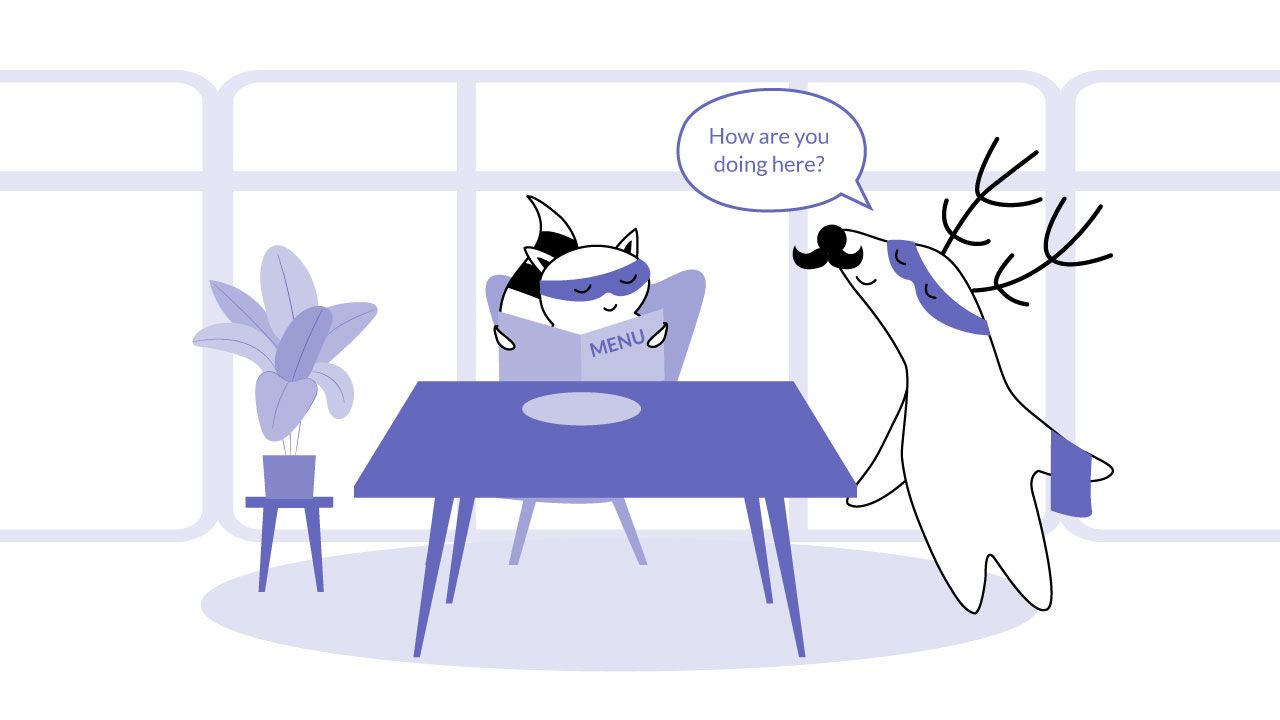
How to Answer "How Are You Doing?" in Conversation
"How are you doing?" should be answered positively — just like "How are you?", but this one allows for a more honest and possibly more detailed response if you are close enough with the person asking.
When answering this question, you do not need to worry about the fact that the phrase "How are you doing?" contains a verb in the Present Continuous tense, trying to come up with an answer with a verb in this form as well. You can give a simple reply, such as:
| I'm good, thank you. How about you? | In fact, replying with "good" isn't grammatically correct either, but this is widely used in colloquial speech. |
| I'm good, thank you. How about you? | In fact, replying with "good" isn't grammatically correct either, but this is widely used in colloquial speech. |
However, close friends and family members most frequently would ask, "How are you doing?" with a direct intention to hear a full, thoughtful answer from you, not just a polite one.
As a result, if you answer them with a short comment "Fine, thanks" — the same way you replied to "How are you?" — they may just ask it again because you haven't answered their question at all.
Still, the phrase “How are you doing?” functions both as a question and as a fixed phrase greeting. Here are some useful tips proved by experience to help you distinguish the question from the greeting:
- A person was walking past somewhere, saying, "How are you doing?" for appearance's sake, and went on without waiting for an answer.
- You've heard a mumbled “Howyoudoin?” shouted from someone on the go or just waving their hand in greeting.
- Someone asks you with an affirmative intonation, not a questioning one.
The Devil Hides in the Detail — Or, the Accent
Depending on the word you put an emphasis on when speaking, these phrases can also convey different, unique meanings.
For example, while "How are you?" can be used as a form of a versatile greeting, an accented "How are you?" would have a more personal, sincere, and even heartfelt tone, allowing you to express concern.
When it comes to the other phrase, a straightforward, unassuming "How are you doing?" can be converted into a more intriguing one when putting an emphasis on "How are you doing?" — thanks to Joey Tribbiani, you already have a clear understanding of how to say it properly.
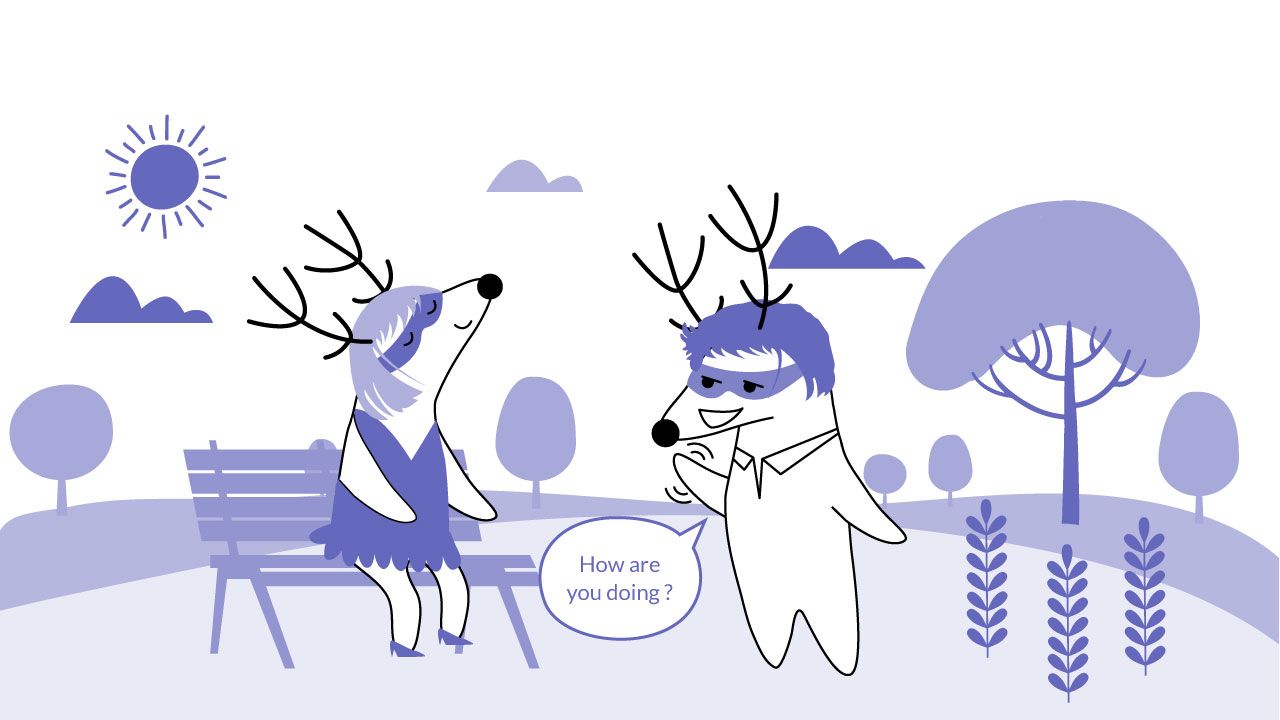
Which One to Use in Business Correspondence?
When used colloquially, the differences between these two phrases may seem invisible or too insignificant to bother. However, when comprising a business email, you might wonder which one will look more professional and appropriate for the context.
While both phrases are suitable enough for work-related correspondence, it is better to stick to a more generic "How are you?", especially if you do not know the receiver very well. "How are you doing?" can seem a little too friendly in a formal context.
Moreover, it is completely okay to leave "How are you?" unanswered when writing a reply to the email (or when using other online means of communication) and move directly to the email's main subject.
How Can You Replace "How Are You?" and "How Are You Doing?" in Business Correspondence?
You may want to avoid starting an email with any of these phrases, as they might seem too casual or even ambiguous. Fortunately, you don't necessarily have to stick to them — there are plenty of ways to compose an email using alternative greetings but still staying polite and formal.
Here are a few examples:
- I hope you’re having a great weekend / productive week / upbeat day.
- I hope you’ve had your coffee already. / Are the ideas flowing along with the coffee?
- I enjoyed your social media post / tweet / picture.
This is also a good practice to refer to shared experiences, such as industry events or specialized workshops attended earlier, to make the message more personalized — just make sure that such a note is relevant to the topic you're going to discuss further in the email.
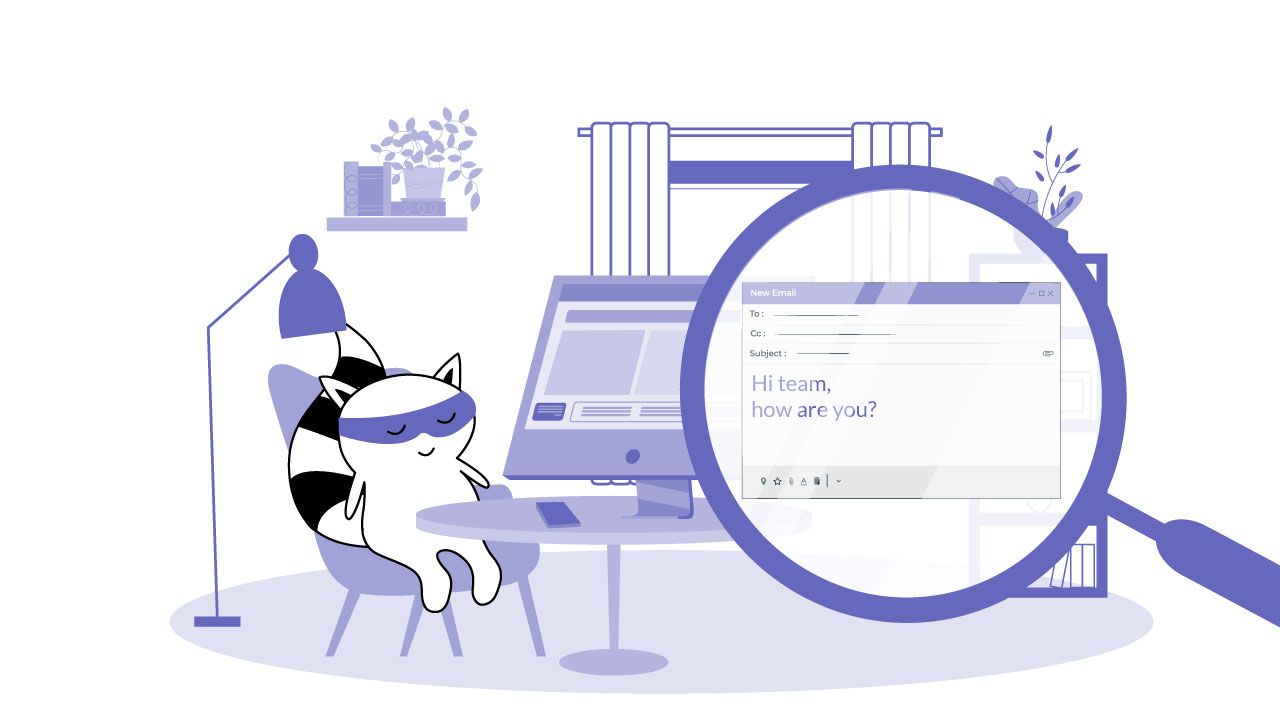
The Bottom Line
As you can see, the difference between "How are you?" and "How are you doing?" is not as insignificant as it might seem at first glance — the exact same words can gain a different meaning when spoken, depending on how well you know the person speaking, their intonations and accents, as well as the overall context of the conversation.
Don't worry if you've realized that there is a difference between these two phrases only today — language learning is a life-long process, and you are now ready to apply this knowledge in practice.
For example, you can start by watching English movies or listening to stories narrated by native speakers — we've got plenty of them on the Langster app. This way, you will not only get more familiar with the real-life usage of these phrases, but you’ll also learn more variations to answer them.
And maybe you want to learn how to say "How are you doing" in other languages? Then visit our blog here.
Learn English with Langster







